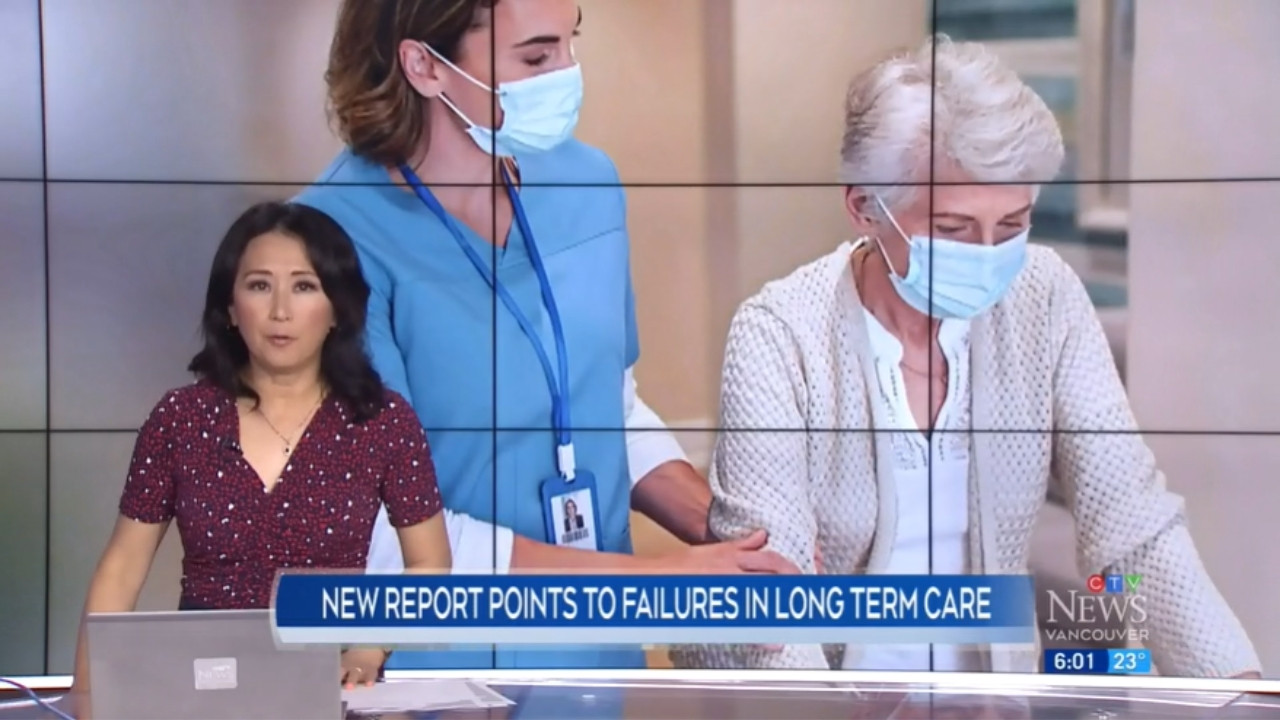Last month, UBC researchers released a post-COVID report that offers recommendations to better prepare long-term care homes for future outbreaks. The project was led by UBC School of Nursing Assistant Professor, Dr. Farinaz (Naz) Havaei and was conducted in collaboration with BC Care Providers Association (BCCPA). It also includes input from 19 LTC home operators, plus nurses, personal support workers, allied health, ancillary workers, managers, directors, residents, and family representatives affiliated with each of the four regional health authorities.
The report garnered interest from various media outlets across the province, with Dr. Havaei and BCCPA CEO Terry Lake discussing some key recommendations found in the report. Some of these recommendations include:
- LTC homes must continue to screen visitors of LTC homes for COVID-19 using their existing practices and procedures.
- The visitation policy must allow every resident, or their primary contact to identify at least one essential or designated visitor, who would be permitted entry into that resident’s LTC home at all times, including during an outbreak.
- LTC residents and their families must be consulted and engaged as equal partners in the process of LTC policy development, implementation and evaluation.
- LTC homes must have a contingency staffing plan that ensures quality and safe resident care delivery during potential crises such as outbreaks.
- The BC government, regional health authorities, and LTC homes must work together to develop a long-term recruitment and retention plan focused on building a healthy and optimal LTC workforce.
- Infection prevention and control (IPAC) recommendations must be communicated to care homes from a single organization in the province, and special attention must be given to the frequency of communication.
Of the reported recommendations, Terry Lake highlighted permitting a designated or essential visitor for each resident, even during the outbreak, in his interview with Bruce Claggett on CKNW Jill Bennett Show.
“One of the largest impacts on long-term care was social isolation and separation of residents from their families, particularly in first year of pandemic where visitor restrictions were so tightly locked down,” says Lake. “People didn’t get to see their loved ones in care and that had a very drastic negative impact on their physical and mental wellbeing.” With this already being implemented, he says that it has “already made a difference in those homes that experienced outbreaks.”
Another highlighted recommendation was concerning health human resources, particularly addressing staff shortages. In his interview with CTV News, Lake says that “there was no casual pool to fill in when someone was sick, so people had to work vast amounts of overtime,” and adds that “they got burned out and left the system, which made the situation worse across the board.”
Although some of these recommendations have already been implemented, there is still more work to be done in the long-term care sector. Lake explains, “we have under-invested in seniors care across Canada for a long time now, and it’s going to take a lot of resources to really meet that challenge.”
Watch the CTV News story with Lake, Dr. Farinaz (Naz) Havaei, and Dr. David Keselman, CEO of Louis Brier Home and Hospital here.
See below for the full list of media coverage on the report:
CTV News Vancouver
Jill Bennett Show on CKNW
Prince George Citizen
Pique NewsMagazine
Delta Optimist
Squamish Chief
Tri-City News
New Westminster Record
Vancouver is Awesome
Alaska Highway News
Richmond News
Sechelt / Gibsons Coast Reporter
CFAX 1070
Coast Mountain News
Read the full report here.





